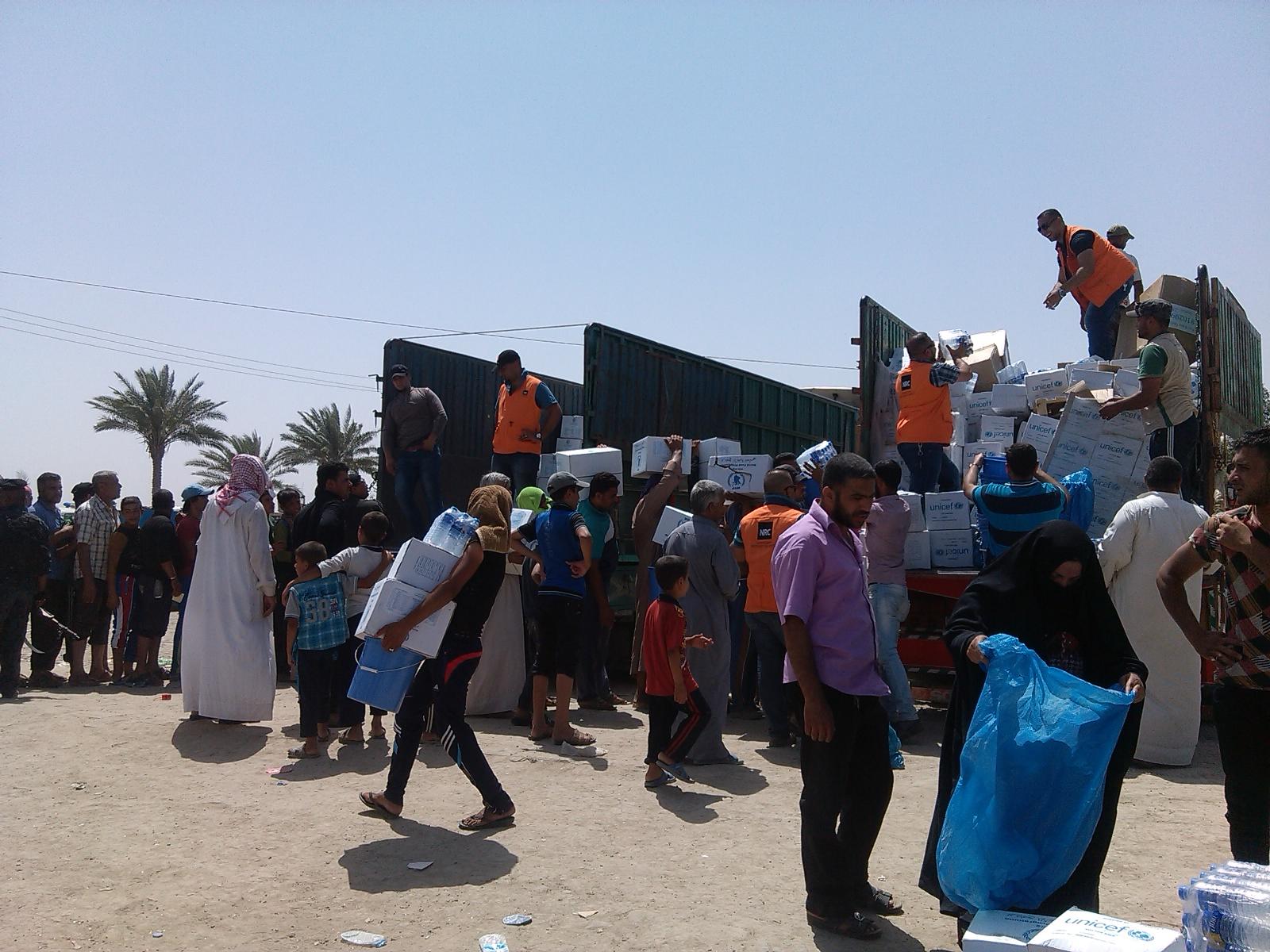
“Displaced families are living in precarious conditions and are in desperate need of adequate water, food and medical assistance”, said Noori.
“People are telling us that they have been walking for three or four days in temperatures of up to 40 degrees Celsius to get to safety. They are exhausted and dehydrated. Many are sleeping out in the open. Their suffering is unimaginable”, he added.
Many of the newly displaced families are heading towards neighbouring Baghdad province – where hundreds are waiting to cross the checkpoint by Bzeibiz bridge. The Norwegian Refugee Council has been handing out water, hygiene kits and food to 1,000 families on the Anbar side of the crossing and to 500 families on the Baghdad side, in cooperation with UNICEF and World Food Programme. NRC is also working to get life-saving assistance to civilians in other locations inside Anbar province including Habaniya and Amirriyat Al-Fallujah.

Photo: NRC/Diana Tonea
Trapped
“Thousands of civilians remain trapped in conflict areas inside Anbar, due to ongoing fighting and security concerns. Many of the civilians who have been able to flee – are unable to reach safety in neighbouring provinces, due to ad hoc entry restrictions”, said Country Director at the Norwegian Refugee Council Nasr Muflahi.
“All parties to the conflict need to ensure that civilians are protected. Those who are forced to flee should be able to reach safe locations”, he added.
Lack funding
Even before last week’s fighting, more than 130,000 people had been displaced by the violence in Anbar province since the beginning of April. Some people had only just returned to Ramadi when the current wave of violence broke out, and are now displaced for a second time. Unfortunately, Anbar is likely to remain the epicentre of conflict in Iraq, with more displacements expected during the rest of 2015. “The security situation, coupled with a lack of funding, is making it extremely difficult to cover the growing humanitarian needs inside Anbar”, said Muflahi.
Currently, the appeal for assistance to the crisis in Iraq in 2015 is only 13% funded – and there is an urgent need for increased funding to be able to scale up the assistance. More than 2.8 million people have been displaced in Iraq since the beginning of 2014.




.jpg?width=768&height=384)